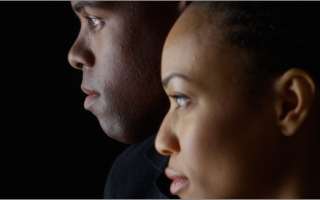
Commission for Gender Equality
The Commission for Gender Equality: Ensuring Justice and Equity for all!
The Commission for Gender Equality (“CGE”) is a national institution and plays a pivotal role in ensuring and promoting the constitutional value of gender equality. As we celebrate Women's Month on the 9th of August, it is fitting that section 9 of the Constitution protects equality and provides that “everyone is equal before the law and has the right to equal protection and benefit of the law”. Although vast strides have been made over the past decades to ensure gender equality, there are still instances of discrimination based on gender. This article will explore one of the avenues a person can approach for access to justice, being the CGE.
What is the CGE and how does it assist?
The CGE is an organisation created by section 187 of the Constitution and as its name states, its main function is to ensure respect for gender equality and to fight gender discrimination. The CGE fulfils its function in the following manners:
> Ensure the promotion of gender equality by monitoring and evaluating policies, practices and legislation.
> Educate and raise awareness about gender issues and equality in all spheres of life.
> Conducting research that will assist in understanding the underlying causes of gender inequality and developing recommendations for legal reform.
> Lastly, the investigation of complaints of gender-based discrimination and gender-related issues.
The CGE may also offer assistance to those who lodged complaints with them by providing legal advice, assistance in legal proceedings and alternative dispute resolution forums (such as mediation or conciliation).
What matters can be heard by the CGE?
The CGE deals with a wide range of matters related to gender equality and discrimination, including but not limited to the following:
> Gender-based violence related to domestic violence, sexual harassment, rape, and other forms of gender-based abuse.
> Discrimination in the workplace based on gender, such as unequal pay, unfair dismissal or denial of promotions just because the person is a specific gender.
> Unequal access to state resources and opportunities based on a person's gender, such as discrimination related to access to education, healthcare and economic opportunities.
> Harmful customary or cultural practices that violate gender equality principles, such as forced marriages or female genital mutilation.
> Violations of reproductive rights, including access to contraception, safe abortion services and maternal healthcare.
What are the complaint procedures and remedies?
When someone wants to lodge a complaint with the CGE, they can do so through various means. The complainant can lodge the complaint in person at the CGE offices, through an online application on the CGE website or by registered post. The complainant must provide details of the alleged discrimination or gender-related event, together with any supporting evidence they might have in their possession.
The contact details of the CGE are:
E-mail Address: gender-enquiries@cge.org.za
Telephone: 011 403 7182
Once a complaint has been received by the CGE, an initial assessment will be conducted to determine whether the CGE is the appropriate forum to assist with the matter. If the CGE can assist, an investigator will be assigned to the matter to conduct a thorough investigation by reviewing the submitted evidence, interviewing witnesses, evaluating the surrounding circumstances and so on. The main aim of the investigation is to identify the perpetrator/s and to establish the facts of the matter.
In some matters, the CGE may attempt to resolve the matter through mediation or conciliation. This involves bringing the parties together in an attempt to negotiate a mutually acceptable resolution, however, this is not always possible. If the outcome of the investigation finds that there is evidence of discrimination, the CGE will make their recommendations for corrective action to take place. Depending on the nature of the complaint, the victim of the discrimination may be awarded compensation, employers can be asked to change workplace structures and policies, or to take disciplinary action against the perpetrator to mention a few remedies. It must be noted that the CGE may also refer matters to other relevant authorities for further action against the perpetrator, for example, to the police if there are alleged criminal offences involved.
Conclusion
The CGE is not just an institution, but a vital instrument for justice and equality in South Africa. By keeping a vigilant eye on governmental practices, educating the public and investigating complaints, the CGE plays a crucial part in addressing and preventing gender discrimination in all sectors and spheres within South Africa.
The CGE embodies the hope for a future where gender does not determine one's fate in society and where equality is not merely a principle, but a reality for all South Africans in accordance with our Constitution.
Did you know…The expenses or a portion of the expenses incurred by investigators in CGE complaints, can be paid by the State.